| All Artists: Ernst von Dohnanyi, Matthias Bamert, BBC Philharmonic Orchestra Title: Dohnányi: Symphony No. 2; Symphonic Minutes Members Wishing: 0 Total Copies: 0 Label: Chandos Release Date: 6/18/1996 Genre: Classical Styles: Historical Periods, Modern, 20th, & 21st Century, Symphonies Number of Discs: 1 SwapaCD Credits: 1 UPC: 095115945520 |
Search - Ernst von Dohnanyi, Matthias Bamert, BBC Philharmonic Orchestra :: Dohnányi: Symphony No. 2; Symphonic Minutes
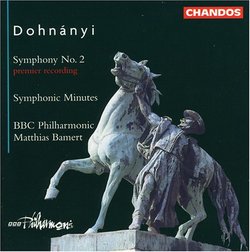 | Ernst von Dohnanyi, Matthias Bamert, BBC Philharmonic Orchestra Dohnányi: Symphony No. 2; Symphonic Minutes Genre: Classical
|
Larger Image |
CD DetailsSimilar CDsSimilarly Requested CDs
|
CD ReviewsMusic To Discover D. A Wend | Buffalo Grove, IL USA | 04/26/2002 (5 out of 5 stars) "This CD marks the premiere recording of Dohnanyi's Second Symphony. I find it odd that it has never been recorded, as it is a tuneful and engaging symphony. The music has a romanticism that is closer to the German tradition than Dohnanyi's Hungarian contemporaries: Bartok and Kodaly. The Second Symphony was written during the Second World War, but reflects none of the cataclysmic horrors of the war. The mood is overall somber and lyrical with a short scherzo that is a circus-like parody. It ends triumphantly in a movement of theme and variations. The Symphonic Minutes of 1933 is a pure delight consisting of five short movements: Capriccio, Rhapsodia, Scherzo, Thema con Variazione and Rondo. It is a charming, uplifting piece, a great concert opener. This CD provides a good introduction to Dohnanyi's music and is highly recommended." 2 Candidates for Repertoire Status in Sterling Performances J Scott Morrison | Middlebury VT, USA | 02/12/2005 (5 out of 5 stars) "I cannot recall any time recently when I've been more bowled over by music new to me. I had earlier reviewed Dohnányi's First Symphony, conducted by Leon Botstein, and loved it. I was contacted by a musical friend who said, in effect, 'if you think THAT's good you should hear his Second Symphony.' Well, he was right and then some. Both the works on this disc--the Second Symphony and the so-called 'Symphonic Minutes' ('Szimfonikus percek' in Hungarian)--confirm for me that Dohnányi is a vastly underrated composer. He is not only a first-rate tunesmith (a prerequisite for greatness in my book) but also a master of form and orchestration. 'Symphonic Minutes,' a five-movement suite, starts with as striking and memorable a bit of orchestration as that, say, of Respighi's 'Pines of Rome.' Flitting flutes - often flutter-tonguing, celesta, gossamer strings and breathless double-tonguing horn quartet express the kind of wit and excitement the subtitle 'Capriccio' and tempo, Vivacissimo possibile, imply. The second movement, Rapsodia, features a lovely song on the English horn, one of Dohnányi's favorite melody instruments (and mine). The brief Scherzo is a bumptious tour de force of metrical irregularity. The Theme with Variations is based on what sounds like a folk-song, sung by cor anglais with spice added by glinting celesta, and in its four minutes it goes from sweet and tender to brassy and martial. The Rondo finale is a breathless perpetuum mobile in polka rhythm. I'm told by a Hungarian musical friend that at its first performance in Vienna the audience didn't 'get it.' Hard to imagine. I really do think this 15-minute gem could easily be a concert opener or even a pops concert favorite. The Second Symphony in E Major, Op. 40, starts with a portentous, irregular, jagged theme suggesting Big Events. Written in the early Nazi years, it would be tempting to guess it was inspired by current events, but we'll never know about that. The second theme, played by the violas, is lyrical, serene and a welcome relief from the agitation of the earlier moments. As the movement progresses it becomes more and more Romantic as if Dohnányi is hoping beauty and romance will conquer all. There are, though, menacing interruptions now and again by peremptory, even brutal, brass and snare drums, reminding us of the earlier disquiet and they ultimately reassert their former strength through to the end of the movement. The second movement is a welcome island of utterly lovely late Romantic beauty, from the beginning cor anglais melody (there's the instrument again!) through some gorgeous Brahmsian string-dominated harmonies. There is a rhapsodic duet for clarinet and (alto?) clarinet over string tremolos in the middle section that is joined eventually by, you guessed it, cor anglais, and then the rest of the solo winds. This has a rapt autumnal, slightly melancholy sound. The movement returns to its earlier atmosphere of calm and serenity. The Scherzo, called here 'Burla,' reminds one of the Scherzo of the 'Symphonic Minutes' in that it is awkwardly energetic, brimming with cynical sass. This one has glissing trombones--shades of Bartók!--, snarling trumpet strawberries, mocking piccolos, oompahing tuba, and a Kabalevskian nonchalance. The Finale comprises a short andante introduction leading to an extraordinarily beautiful harmonization for divisi strings of Bach's 'Komm, süsser Tod'--the BBC Philharmonic's strings are almost too beautiful for words here; tears come to my eyes simply recalling the depth and sheen of that sound--followed by an arch-form of five variations, and ending in classic style with a masterful six-minute fugue based on the opening phrase of Bach's chorale theme. It culminates in a maestoso coda, a slowly treading march based on the symphony's opening theme, that builds to a defiant blaze of E major sonority. This recording by Matthias Bamert and the BBC Philharmonic is a first recording for the Symphony. It is stunning. But we need more, more, more recordings and performances of this towering piece. Please. Urgently recommended. TT=64:34 Scott Morrison Addendum: After this review appeared, I got a note from a Dohnányi aficionado, a musician who knows the composer's works far better than I. He writes: "More on your Dohnanyi review, regarding the circumstances of its composition and political background. I think the work is absolutely connected to the war for a several reasons. First and most obvious is the combative tone of the entire work. The 1st movement is clearly a battle, the development (one of the best I've heard anywhere) is driven in a manner not in keeping with any earlier work. I hear the 2nd movement as something like the false calm between battles, not placid or pastoral, but exhausted and sanguine. The 3rd movement is pure parody, the forced smile that Shostakovich is given much credit for. Here, D's talent for injecting classy humor into his music is confused for wrenching pain. Don't forget, D lost both sons in the war. (Hans, was part of the plot to assassinate Hitler.) Unimaginable pain. And that brings us to 'Come Sweet Death.' D had written many variations, but none on another composer's theme. To choose this one is surely symbolic. Last, this is the only major work that he subjected to revision, apparently, radical revision in this case. He really wanted to get this right, really have his message clearly heard and understood." " Powerful symphony ... engaging suite Classic Music Lover | Maryland, USA | 07/09/2007 (5 out of 5 stars) "I too hear "wartime rumbles" in the Second Symphony. I only wish we could hear a work like this in the concert hall, instead of the same few symphonies from the WWII era that generally get the limelight (e.g., Walton's First, several Shostakoviches, and the Korngold). The Symphonic Minutes are from a decade earlier -- and what a world of difference those 10 years makes! Still, I find it very exciting in its own way -- and the orchestra does a phenomenal job whipping its way through the final movement at about 500 miles an hour!
Matthias Bamert, in this and his other Dohnanyi disks, has proven himself to be a sympathetic and highly effective interpreter of this composer's music. This is now the standard against which other performances should be judged. Kudos to Chandos for producing the series." |

 Track Listings (17) - Disc #1
Track Listings (17) - Disc #1




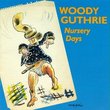
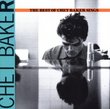
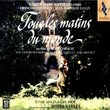
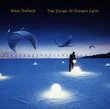
![Seussical [2000 Original Broadway Cast]](https://nationalbookswap.com/cd//m/02/4802/514802.jpg)



